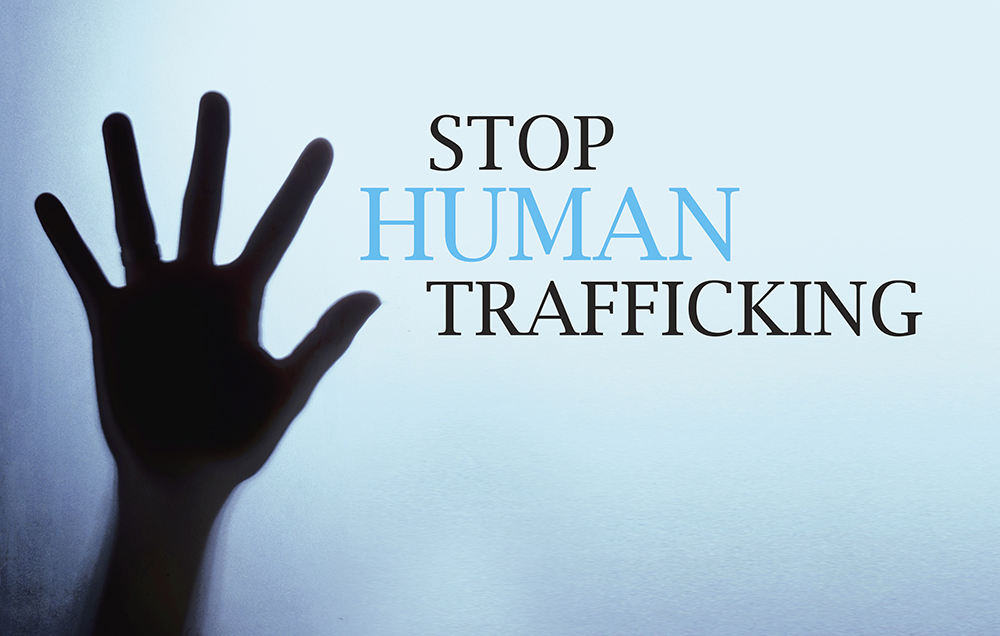MAKING HUMAN TRAFFICKING A NATIONAL PRIORITY

Human trafficking is a deeply disturbing issue that has triggered the concern of government and indeed certain NGOs. People all over the world are victims of human trafficking both in their own countries and abroad.
Human trafficking consists of the transferring, harboring and receipt of a person or persons, often done in violent or deceptive ways, using threat or coercion. Victims are sexually exploited or made to do labor or services through the use of force or coercion.
Some of the fundamental challenges surrounding human trafficking in Nigeria include lack of knowledge of the actual volume, nature and impact of trafficking. Also, it would appear that there is a gap in enforcement mechanisms. Despite the seriousness of the crime, the government and law enforcement agencies do not seem to pay much attention to it.
Human trafficking often goes ‘under the radar’ of the government. They have prioritized some key crimes and focused on fighting them. Human trafficking needs to be one of these priorities. This is because it has a horrible impact on the victims and it is perpetrated on a large scale. The fate of victims of trafficking is a sorry one. Sometimes, victims end up being convicted for crimes which their traffickers forced them to commit.
Creating a meaningful national response to trafficking requires a clear understanding of the operative meaning of the crime as well as a serious commitment to documenting its actual practice. There is a serious lack of accurate information regarding the prevalence, structure and impact of human trafficking. Because of the lack of reported cases, human trafficking does not have the same attention that other crimes do, which makes it difficult for the government and the police to prioritize it on their agenda.
There are many ways through which trafficking can be made a national priority. First, there is need for public awareness. Anti-trafficking groups, the media and government agencies can make concerted efforts to raise awareness on the urgent need for the fight against this heinous crime. Raising awareness can help get more people involved and interested in joining the fight. When there is a chain reaction, the government’s attention will be drawn to the severity of trafficking and the need to do more to combat it.
More specific data on trafficking could be obtained and such information could be used to improve analysis and modeling to provide the government with a far more accurate understanding of actual trafficking practices. As stated earlier, there is a serious gap in accurate information regarding human trafficking. Many organizations come up with different figures, which is difficult for the government to work with. In gathering this information, technology could come in handy.
Speaking of technology, Devatop Center for Africa Development has been at the forefront of the fight against human trafficking. Through its TALKAM Application and website, the organization has created a platform where victims of trafficking can make reports. TALKAM is an innovation project that focuses on utilizing information and communication technology to speak out about human trafficking, human rights abuses and irregular migration. Also, through her training, advocacy, TV and radio programmes, more than one million people have been sensitized on anti-human trafficking and eradication of gender based violence.
The organization has partnered with National Agency for Prohibition of Trafficking in Persons (NAPTIP) and a host of other agencies to carry out anti-human trafficking advocacy projects in Nigeria.
NAPTIP is mandated to enforce the Trafficking in Persons (Prohibition) Enforcement and Administration Act in Nigeria. Since its inception, the agency has had over 331 convictions on human trafficking, as of September 2017. Between 2003 and 2017, over 3000 victims have been rescued by NAPTIP. In November 2020, the agency kicked off the process to develop a New National Action Plan against human trafficking in Nigeria. We can look forward to more action against trafficking as this plan unfolds with over thirty stakeholders including ministries, law enforcement agencies, civil society organizations and international partners coming on board.
These approaches can encourage the government to raise human trafficking up its list of priorities. By working towards these solutions and implementing them into everyday life, human trafficking will become a national priority, and more effort will be put in to combat the crime.
Written by Offiong Ekanem Esq, Content Development Volunteer, Devatop Centre for Africa Development